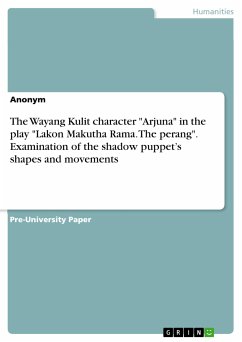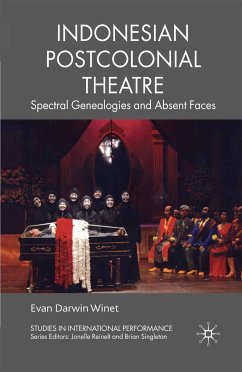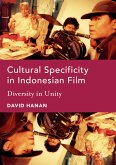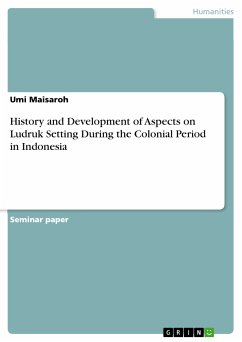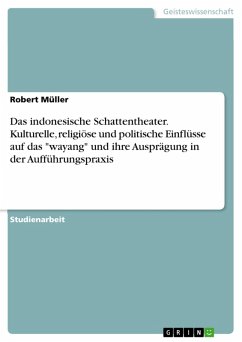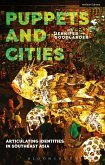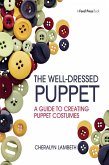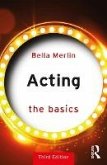Pre-University Paper from the year 2013 in the subject Theater Studies, Dance, grade: 1,3, , language: English, abstract: At first sight it seems obvious that movements and shapes are important for characterizing the personality of a Wayang Kulit puppet in shadow theatre, in the further development of the essay it turned out to an even more complex and detailed arrangement. There is a deeper meaning behind the performance, created in specified details in the movements and shapes of Arjuna. So, in what way do the shadow puppets` shapes and movements support the characterization of the Wayang Kulit character "Arjuna" in the play "Lakon Makutha Rama - The perang"? The essay shows in which way it is possible to understand the characters of Wayang Kulit figures from an Indonesian view. Indonesians learn about the traditional meanings of the puppets' features from the beginning of their childhood on people in the western world, however, often do not even notice the small details and what they mean, such as the shape of the puppets' eyes and the extraordinary hairstyle. Arjuna's features regarding his outward appearance as well as his behavior represent perfection. In order to reflect on his specific abilities, attitudes as a fighter and royal figure, it is sensible to take a closer look at the play "Lakon Makutha Rama - The perang". In the further development, it turned out to make most sense to analyze a battle scene in which Arjuna focuses on his enemy and where the precision of his movements play an essential role for the understanding of the personality of the characters on the one side and the meaning of the entire play on the other side. Thereby, Arjuna's refined strategy becomes evident and a lot of movements are needed to finally win the fight, which highlight his characteristics as well as the shapes of his shadow.
Dieser Download kann aus rechtlichen Gründen nur mit Rechnungsadresse in A, B, BG, CY, CZ, D, DK, EW, E, FIN, F, GR, HR, H, IRL, I, LT, L, LR, M, NL, PL, P, R, S, SLO, SK ausgeliefert werden.

